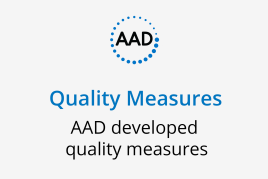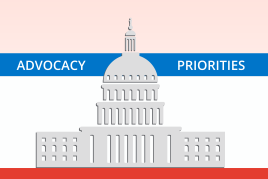Keeping you in the driver’s seat with step therapy and prior authorization reform

Step therapy and prior authorization protocols interfere with patient care and create unwanted burdens on dermatology practices. Thanks to the AADA’s advocacy efforts over the years, dozens of states have enacted step therapy reform laws. With more than half of the country recognizing the value of a physician’s medical judgment, we continue to work in the best interest of you and your patients.
Tennessee
Recently, the AADA worked closely with the Tennessee Dermatology Society and other members of the Tennesseans for Affordable Access to Medicines to support step therapy reform legislation recently signed by Tennessee Gov. Bill Lee.
Effective Jan. 1, 2023, the new law requires that a medical exemption from the step therapy protocols must be granted if the required prescription:
is contraindicated or will likely cause an adverse reaction,
is expected to be ineffective,
is not in the best interest of the patient,
or if the patient is stable.
Additionally, health plans or utilization review organizations must provide a clear, readily accessible, and convenient process to request a step therapy exception. A response to an exception request must be provided within two business days of receiving the request.
Pennsylvania and Massachusetts
Additionally, the Pennsylvania State Senate recently unanimously passed legislation that would reform prior authorization and step therapy, and the Massachusetts House of Representatives unanimously passed step therapy reform legislation. The bills would increase transparency, require health plans to respond to appeals in an expedient manner, and provide an exemption from step therapy protocols based on the physician’s medical judgement. The AADA has supported the efforts of the Pennsylvania Academy of Dermatology and Massachusetts Academy of Dermatology, which have been advocating for the legislation for more than two years, through letters of support and grassroots alerts.
Federal
The AADA advocating for the support of the Improving Seniors Timely Access to Care Act and the Safe Step Act in Congress.
The Improving Seniors Timely Access to Care Act (HR 3173/S 3018) would provide oversight, reduce administrative burdens, and improve transparency of the prior authorization process in Medicare Advantage plans.
The Getting Over Lengthy Delays in Care as Required by Doctors (GOLD CARD) Act of 2022 (HR 7995), which would exempt qualifying physicians from prior authorization requirements under MA plans.
Both bills are among the “asks” at the upcoming 2022 AADA Legislative Conference.
Read more about the Academy’s step therapy advocacy efforts.
 Find a Dermatologist
Find a Dermatologist
 Member directory
Member directory
 AAD Learning Center
AAD Learning Center
 2025 AAD Innovation Academy
2025 AAD Innovation Academy
 Need coding help?
Need coding help?
 Reduce burdens
Reduce burdens
 Clinical guidelines
Clinical guidelines
 Why use AAD measures?
Why use AAD measures?
 Latest news
Latest news
 New insights
New insights
 Physician wellness
Physician wellness
 Joining or selling a practice?
Joining or selling a practice?
 Promote the specialty
Promote the specialty
 Advocacy priorities
Advocacy priorities
